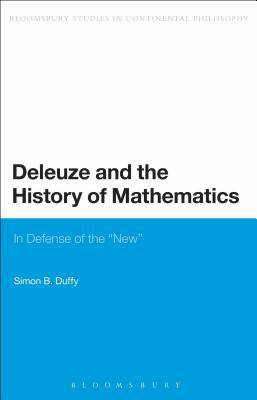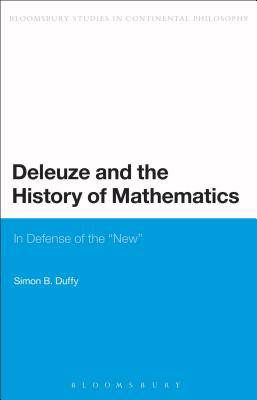
- Afhalen na 1 uur in een winkel met voorraad
- Gratis thuislevering in België vanaf € 30
- Ruim aanbod met 7 miljoen producten
- Afhalen na 1 uur in een winkel met voorraad
- Gratis thuislevering in België vanaf € 30
- Ruim aanbod met 7 miljoen producten
Zoeken
€ 58,45
+ 116 punten
Uitvoering
Omschrijving
Gilles Deleuze's engagements with mathematics, replete in his work, rely upon the construction of alternative lineages in the history of mathematics, which challenge some of the self imposed limits that regulate the canonical concepts of the discipline. For Deleuze, these challenges provide an opportunity to reconfigure particular philosophical problems - for example, the problem of individuation - and to develop new concepts in response to them. The highly original research presented in this book explores the mathematical construction of Deleuze's philosophy, as well as addressing the undervalued and often neglected question of the mathematical thinkers who influenced his work.
In the wake of Alain Badiou's recent and seemingly devastating attack on the way the relation between mathematics and philosophy is configured in Deleuze's work, Simon B.Duffy offers a robust defence of the structure of Deleuze's philosophy and, in particular, the adequacy of the mathematical problems used in its construction. By reconciling Badiou and Deleuze's seemingly incompatible engagements with mathematics, Duffy succeeds in presenting a solid foundation for Deleuze's philosophy, rebuffing the recent challenges against it.
In the wake of Alain Badiou's recent and seemingly devastating attack on the way the relation between mathematics and philosophy is configured in Deleuze's work, Simon B.Duffy offers a robust defence of the structure of Deleuze's philosophy and, in particular, the adequacy of the mathematical problems used in its construction. By reconciling Badiou and Deleuze's seemingly incompatible engagements with mathematics, Duffy succeeds in presenting a solid foundation for Deleuze's philosophy, rebuffing the recent challenges against it.
Specificaties
Betrokkenen
- Auteur(s):
- Uitgeverij:
Inhoud
- Aantal bladzijden:
- 224
- Taal:
- Engels
- Reeks:
Eigenschappen
- Productcode (EAN):
- 9781472591340
- Verschijningsdatum:
- 20/11/2014
- Uitvoering:
- Paperback
- Formaat:
- Trade paperback (VS)
- Afmetingen:
- 155 mm x 231 mm
- Gewicht:
- 340 g

Alleen bij Standaard Boekhandel
+ 116 punten op je klantenkaart van Standaard Boekhandel
Beoordelingen
We publiceren alleen reviews die voldoen aan de voorwaarden voor reviews. Bekijk onze voorwaarden voor reviews.











